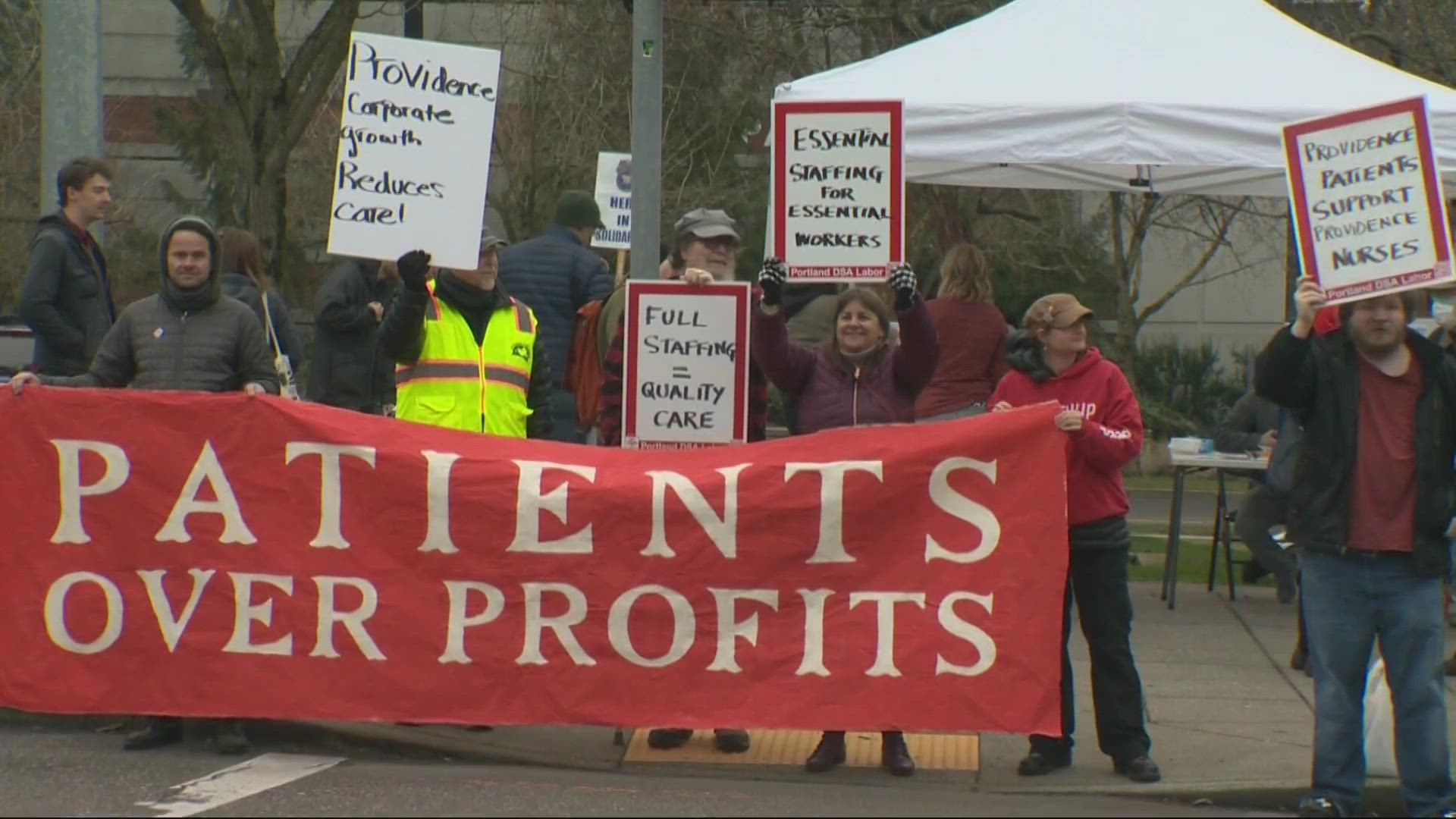PORTLAND, Ore. — Hospital staffing shortages have gone from bad to worse during the COVID-19 pandemic over the past three years, with a growing number of nurses leaving the bedside overwhelmed and exhausted.
Caregivers have been stretched thin in Oregon even as the number of new patients coming in has increased. Workers at every level of the health care sector agree that it's time for system-wide changes, and they're bringing those concerns to Salem.
"Ultimately it helps all of Oregonians to have nurses at the bedside that are trained, that are well taken care of, get the rest and meal breaks, and have enough help to actually do their jobs," said Virginia Smith, a Providence nurse and board member with the Oregon Nurses Association.
Providence nurses held a rally outside of the health system's headquarters Friday, calling for strong contracts for frontline workers at Providence hospitals, and also advocated for all nurses by pushing for safe staffing.
"[During the pandemic], we were all just kind of holding our breath and really trying to hold still just to see what was going to happen next," said Smith, "Now, with the decrease in overall health of our total communities, we are seeing people that are sicker and sicker walking through our doors."
Many nurses said it's not a surprise that so many have left the profession.
"Pretty dire conditions. All of use are a little tired and overwhelmed. Exhausted," said Deborah Williston, who's been a nurse for more than 20 years, "Most corporate medicine in my opinion, including Providence, talks about patient- centered care and that's what we needed to get back to. And we need to get back to supporting the people that provide that."
Providence sent a statement to KGW, writing in part, "We take staffing extremely seriously and are working hard to attract new nurses and retain our current, valued caregivers through market-competitive compensation and benefits."
The hospital also noted that the nursing shortage is a national and global problem. It's a problem the Oregon Association of Hospitals and Health Systems is also working to fix.
"The long term solution to our workforce challenges are to grow the healthcare workforce at this point in time, we simply don't have enough available staff to hire," said OAHHS President and CEO Becky Hultberg. "The only way to address that is to increase the pipeline of of workers available."
Both OAHHS and ONA are pushing lawmakers to take action this session, presenting agendas to the Oregon Legislature specifically aimed at recruiting and retaining nurses, incentivizing nursing educators and stabilizing hospital systems.
"The bills we have proposed are not the full scope of changes we may be contemplating," said Hultberg in a press conference this week. "We need to engage in a collaborative process with stakeholders to come up with a bill that works for employees but continues to protect patients access to care."
While nurses and hospital administrators generally agree on most of the healthcare-related bills expected this session, there is some debate over HB 2697. ONA is advocating for the legislation, which establishes minimum standards for nurse staffing and imposes penalties on hospitals for a failure to adopt that plan. OAHHS said it's concerned that the bill could cause hospitals to shut down beds if they can't hire enough staff to meet the ratios laid out in the bill.

